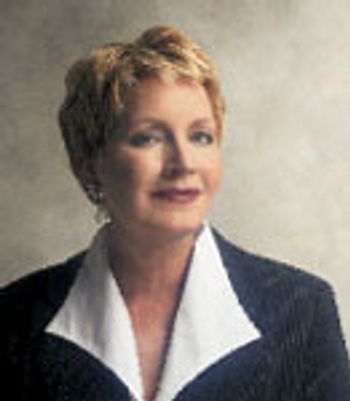
The US pharma market grew just 3.8 percent last year, according to IMS Health. The big loser: lipid regulators. The winners: Biologic response modulators and monoclonal antibodies.

The US pharma market grew just 3.8 percent last year, according to IMS Health. The big loser: lipid regulators. The winners: Biologic response modulators and monoclonal antibodies.

Pharma is still having a hard time earning the confidence of the key opinion elite, as only 56 percent claim they trust the industry.

A Kaiser Foundation study finds that although most Americans look favorably upon pharmaceuticals, they generally think drugs are too expensive and that most of the cost is blown on advertising.

PACME final brochure

PACME brochure

A review of a pilot ePrescribing program reveals that if physicians are given the proper support, the technology can increase safer prescribing habits and boost compliance.

Congress is firing plenty of ammunition at pharma companies-and the regulators

Pharma companies must quit wasting money and get strategic when mapping out their clinical study strategies

The industry needs credibility with consumers to make a spoonful of risk go down. So how does pharma speak to top concerns?

IAG Research released its top-10 list of most-recalled new pharma ads of 2007. Many familiar faces top the list, including the Nasonex bee, Abe Lincoln, and Dr. Jarvik, but how many of those faces will still be there next year?

Avenue A|Razorfish's new digital-outlook report indicates that pharma is still floundering online. Though some pharma companies are taking steps to make their online presence known, others are still crawling.

Under pressure from Congress and public scrutiny, Pfizer voluntarily pulled its controversial television campaign for Lipitor featuring Dr. Jarvik.

A new study shows that while doctors aren't in a rush to stop prescribing Vytorin, they are considering it less often as a first-line treatment option.

Pfizer's consumer ads for Lipitor are causing a stir on the blogs and in Congress. Did the company cross the line by using a famous (but unlicensed) doctor to market a drug, or is this a case of a mistaken identity?

More and more consumers are surfing the Web for information about prescription drugs, but many bypass brand.com sites, a new report says.

Healthcare Education Services has announced details of two additional oncology specific courses to add to its comprehensive range of medical education for the pharmaceutical industry.

Lilly is in the midst of settlement discussions with federal prosecutors over the pharma company?s off-label marketing of the antipsychotic medication Zyprexa. If settled, Lilly could be shelling out more than $1 billion in fines.

Merck is under investigation for allegedly pushing physicians to prescribe Vioxx for unapproved use. Federal investigators are scrutinizing Merck?s marketing and sales practices in search of shady business tactics.

Global marketing strategies and the business opportunities in Japan

Congress blocked DTC user fees, Reagan-Udall, field force reforms while slightly bumping FDA's budget

Will the sole-wholesaler approach mean higher costs for NHS?

After watching similar legislation barring data mining for Rx info get shut down in Maine and New Hampshire, Vermont changes tactics and amends its law.

In the wake of the ENHANCE study, new prescriptions of the cholesterol-lowering drug Vytorin are dropping drastically, but calls to sales reps by physicians are on the rise.

Unlike Vioxx, Vytorin works exactly as explained in its now-famous food-and-family ads. So why are people up in arms against the drug? Experts ponder what went wrong.

In a surprising but not completely unexpected move, FDA announced last week that its Prescription Drug User Fee Act was dead on arrival. Feds cite lack of funding as main reason.

Managed care pharmacy executives list their favorite pharmaceutical companies based on promotional activities and the ability to meet managed care needs. Novartis reigns for 11th straight quarter.

New report finds that neither sales reps nor patient requests are the deciding factor when it comes to physician prescribing habits, information is-the more the better.

New study finds that risks and side effects don't get their fair share of time in television advertising. The authors cry out for more educational information in DTC ads--but is it necessary if the ads aren't breaking the law?


Pricing, safety, comparative effectiveness, patents, and biosimilars top 2008's policy agenda